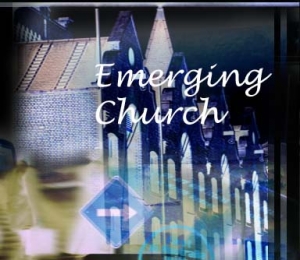 I had a discussion today with a guy that most Christians love to hate. This man used to be a Christian, but rejected it all about twenty years ago, and now lives as a pot-smoking, cursing, swinging spiritist.
I had a discussion today with a guy that most Christians love to hate. This man used to be a Christian, but rejected it all about twenty years ago, and now lives as a pot-smoking, cursing, swinging spiritist.
Yet as I talked to him, I found myself thoroughly enjoying the conversation… more than any theological or biblical conversation I have had in the last several years. It was one of the most refreshing and eye-opening discussions I have ever had.
It wasn’t refreshing and eye-opening because of anything I learned from him, but because it gave me a new appreciation into how many Christians treat non-Christians, compared to how many non-Christians treat Christians in return.
He told me about some of the criticism he gets from Christians, and how he just tries to respond with kindness and love. Isn’t it strange that many Christians, who are supposed to be known for our love, really only have love for each other, whereas everyone outside our “group” gets condemned and criticized for their beliefs and behavior?
I have noticed this sort of behavior on many fronts.
I have noticed this not just in my interactions with people at work and with my neighbors, but also online and in movies. As an example, did you see the movie God’s Not Dead? In it, a Christian university student is challenged by an atheist professor to defend his evangelical beliefs.
I found it strange that in the movie, the meanest and rudest people were the atheists. Also, the “token” Muslim family had a father who beat his daughter.
This is the sort of way Christians often portray non-Christians to one-another, which only goes to show that many Christians have absolutely no idea what most atheists and Muslims are like.
The people that Christians most loudly denounce are often some of the most gracious people to be around.
Doesn’t that seem strange?
Those of us who are saved by grace, teach grace, write about grace, proclaim grace, and have “grace” in the names of our churches and ministries, are some of the least gracious people that exist.
Which got me thinking… just like the preacher pounds the pulpit during his weakest points, maybe those who talk loudest about grace are trying to compensate for a lifestyle that lacks grace.
 Maybe those of us who talk and write a lot about grace should follow the example of non-believers (and Jesus) and start living grace before we ever start to talk about grace with others.
Maybe those of us who talk and write a lot about grace should follow the example of non-believers (and Jesus) and start living grace before we ever start to talk about grace with others.
Besides, living out grace is a better way to teach grace any day.







 The beginning of the service was announced by a funny little video which I won’t try to explain. The welcome was given by a young guy who explained that he was now happy in life again because he got a new iPhone. He was one of the first people in the country to get the iPhone on opening weekend, but the first day he had it, he went swimming with it for 20 minutes, and found out it wasn’t waterproof. So apparently, a week earlier in church he was pretty depressed because he had plunked down $600 for an iPhone and barely even got to show it off. Anyway, he took the phone into an Apple store and told them it was “broken” and they gave him a brand new one, no questions asked. So now life was good again.
The beginning of the service was announced by a funny little video which I won’t try to explain. The welcome was given by a young guy who explained that he was now happy in life again because he got a new iPhone. He was one of the first people in the country to get the iPhone on opening weekend, but the first day he had it, he went swimming with it for 20 minutes, and found out it wasn’t waterproof. So apparently, a week earlier in church he was pretty depressed because he had plunked down $600 for an iPhone and barely even got to show it off. Anyway, he took the phone into an Apple store and told them it was “broken” and they gave him a brand new one, no questions asked. So now life was good again.

 OK, the cat is out of the bag (I guess it was never in the bag)…The article I referred to in the
OK, the cat is out of the bag (I guess it was never in the bag)…The article I referred to in the  But before I get to my practice, it is probably best to begin with what Stegall says a person must believe to receive eternal life. If I remember correctly, Stegall has five things he says must be believed if a person is to be born again. These five things were not listed in his article, but I think I heard him list them in a talk he gave at the Annual Fall Conference at Duluth Bible Church. (So my memory may be wrong on these five…).
But before I get to my practice, it is probably best to begin with what Stegall says a person must believe to receive eternal life. If I remember correctly, Stegall has five things he says must be believed if a person is to be born again. These five things were not listed in his article, but I think I heard him list them in a talk he gave at the Annual Fall Conference at Duluth Bible Church. (So my memory may be wrong on these five…).

 In light of my
In light of my  And so now, sadly, the unnamed authors of the accusatory books and articles make themselves look foolish because, for everybody who knows better, the view they are trying to refute doesn’t exist!
And so now, sadly, the unnamed authors of the accusatory books and articles make themselves look foolish because, for everybody who knows better, the view they are trying to refute doesn’t exist!